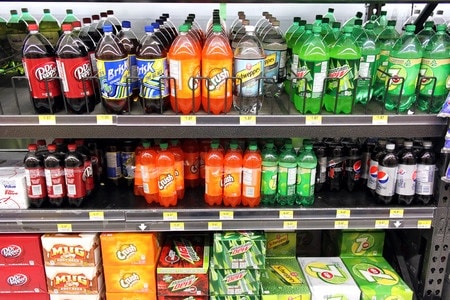
Childhood Obesity News noted the objections of a Chicago citizen whose photo of the sales receipt for a pack of sodas went viral. What else might be in store for consumers of sugar-sweetened beverages?
Chicagoan Fred Emke recommended a measure that, given the rationale behind the soda tax, makes a certain amount of satirical sense. His facetious recommendation was to tax several of the most renowned fattening food items — “A penny a chip, a penny a French fry, or a penny per pepperoni.” Emke went on to say:
When you buy a 32-ounce sports energy drink for 79 cents and you get hit with a 32-cent tax, it’s time to travel outside of Cook County to get your pleasure. Let’s hope all of county government officials dine on kale and water during their sessions to find other ways to tax us back to a healthy life!
The whole topic inspired many public outbursts, like the letter that Richard Clemens sent to the Chicago Tribune which concurred that going to Indiana to take advantage of its 7 percent sales tax and absence of soda tax was well worth the trip. He also articulated the taxpayers’ unwillingness to be taken advantage of:
I refuse to spend anymore of my hard-earned money here in Cook County… I would like to see how much of this tax money actually goes toward programs to help fight childhood obesity and diabetes.
In another letter to the editor, Robert Kandelman wrote:
Anyone can see that the Cook County soft drink tax is nothing more than a money grab. If the tax is intended to promote better health choices, why not tax lack of exercise or bad posture?
For Reason magazine, Christian Britschgi explained how people were still upset about the 2016 increase that jacked up the sales tax to a lavish 10.25 percent, the highest in the land. And then property taxes rose by a devastating 10 percent. Britschgi suggested that the soda tax profit would not be used for anything the people of Chicago would willingly pay for.
Instead, it would just service the crippling debt caused by, among other things, the city’s obligation to pay retired employees their pensions. Conclusion: “The county has gone searching for creative ways of bilking citizens.”
Letter-to-the-editor writer Kandelman recalled that when it was first proposed, Toni Preckwinkle, the Cook County Board President, touted the soda tax as a weapon to fight obesity, diabetes, and tooth decay. Also, it was advertised as benefitting lower-income families, by limiting the amount of sugar-sweetened beverages they could afford. Yet, the tax would not be collected from SNAP (food stamp) recipients.
Many people said negative things about the perceived hypocrisy. This wasn’t about people’s health, or children’s health, or anybody’s health, really, except for the budget, and people don’t like to be lied to about such matters.
Then, when the tax was threatened by a lawsuit and a restraining order, officials cast aside all pretense of intent to raise money to fight obesity. Preckwinkle admitted frankly that the purpose of the tax was to fill holes in the general budget. To make her point, she warned that unless it became law, many county employees would have to be laid off. Britschgi wrote:
Preckwinkle has at least been more honest about the tax, saying “we chose as a revenue generator a sweetened beverage tax… both for the revenue and for the health benefits. But first and foremost, for the revenue.”
To both hypocrisy and this admirable transparency, the public reaction was equally sour.
Your responses and feedback are welcome!
Source: “Why stop with soda? Cook County could tax chips, candy and pizza, too,” ChicagoTribune.com, 08/24/17
Source: “Letter: Cook County soda tax: For health or for profit?,” ChicagoTribune.com, 09/08/17
Source: “Cook County Will Repeal Soda Tax,” Reason.com, 10/09/17
Image source: niloo138/123RF Stock Photo

 FAQs and Media Requests:
FAQs and Media Requests: 











